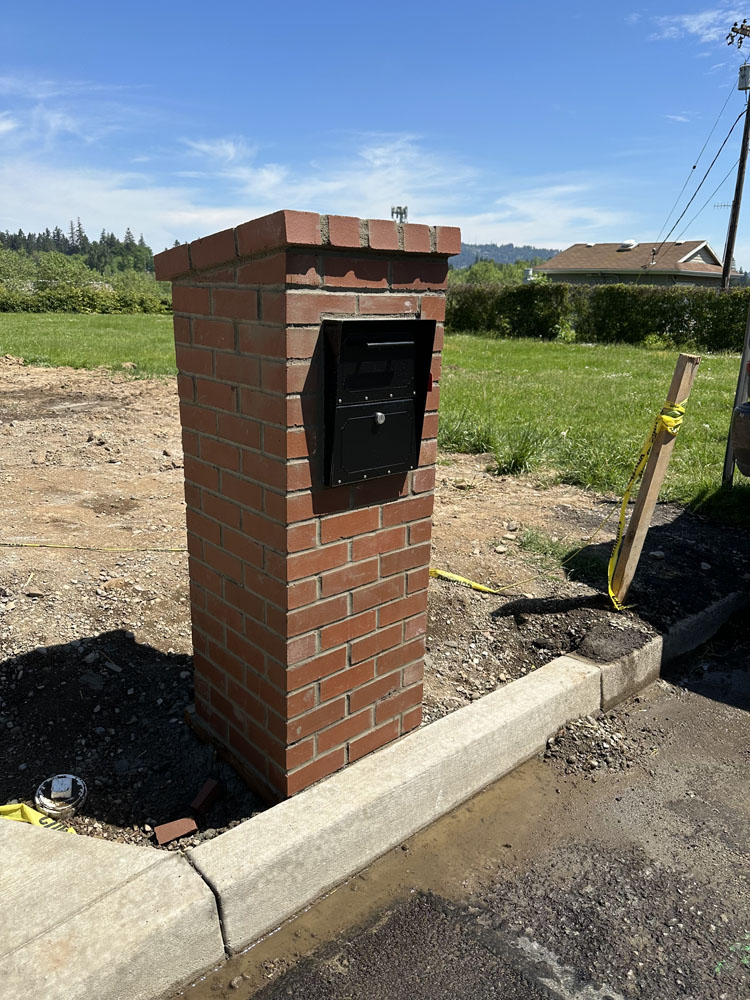Introduction
In the world of construction, structural integrity is paramount. It's the linchpin that holds everything together, ensuring safety, sustainability, and longevity. But what does structural integrity truly entail, and why is it particularly significant in masonry work? This article dives deep into these questions and provides valuable insights drawn from the expertise of seasoned masonry contractors.
By the end of this exploration, you'll understand not just the technical aspects involved but also the lessons learned from years of hands-on experience in the field. So buckle up as we embark on this journey through bricks, mortar, and structural science!
Why Structural Integrity Matters: Lessons from Masonry Contractors
Defining Structural Integrity in Masonry
When we talk about structural integrity in masonry, we're referring to how well a structure can withstand its intended load without experiencing failure. A masonry contractor's job isn't just about laying bricks; it's about understanding how those materials work together under various conditions.
The Role of Materials in Structural Integrity
Masonry structures are typically made up of bricks, stones, or concrete blocks held together by mortar. Each material has unique properties that influence strength and durability:
- Brick: Known for compressive strength and thermal mass. Stone: Offers high durability but requires careful selection. Concrete Block: Versatile and commonly used for its adaptability.
Understanding these properties allows masonry contractors to make informed decisions during construction.
The Importance of Load-Bearing Walls
Load-bearing walls play a crucial role in maintaining structural integrity. They support vertical loads from above, distributing weight evenly throughout the structure.
Designing Load-Bearing Structures
Proper design involves:
Calculating expected loads. Considering environmental factors (like wind or seismic activity). Selecting appropriate materials.This comprehensive approach ensures stability over time.
Common Causes of Structural Failure in Masonry
Despite the robustness of masonry structures, failures can occur due to several factors:
Poor Workmanship: Inadequate mixing or application of mortar can lead to weak bonds. Inadequate Drainage: Water accumulation can erode materials over time. Soil Settlement: Movements in the ground can affect foundational stability.Each failure point highlights why working with an experienced masonry contractor is essential.
Lessons Learned From Past Failures
Analyzing past structural failures provides invaluable lessons for future projects. Here are some key takeaways:
- Always prioritize quality materials. Invest in skilled labor to ensure proper installation techniques. Implement regular inspections to catch issues early.
These lessons serve as a guiding light for both current and future projects.
The Role of Building Codes and Standards
Building codes exist for a reason: they provide guidelines that ensure safety and integrity across all types of structures.
Understanding Local Codes
Masonry contractors must stay abreast of local building codes which may dictate:
- Material specifications Construction methods Safety measures
Non-compliance can lead to serious consequences including fines and compromised safety.
Structural Testing Methods Used by Masonry Contractors
Non-Destructive Testing (NDT)
NDT methods allow contractors to evaluate a structure's integrity without causing damage.
Techniques include:
- Ultrasonic testing Radiographic testing Ground penetrating radar (GPR)
These techniques help identify potential weaknesses before they become critical issues.
Destructive Testing Methods
Though less common, destructive testing may be necessary in certain situations where material samples need thorough evaluation.
Common methods include:
Compression tests Flexural tests Shear testsMasonry contractors use these tests to assess material performance under load conditions effectively.
Best Practices for Maintaining Structural Integrity
Regular Inspections
Just like you wouldn’t skip your yearly check-up at the doctor’s office, buildings require regular inspections too!
Key components include:
Visual assessments Monitoring any signs of cracking Checking drainage systemsRegular upkeep helps catch potential problems before they escalate into costly repairs or worse—structural failure!
Quality Control During Construction
Implementing rigorous quality control measures during construction is vital for ensuring long-term stability.
Essential steps include:
Training staff on best practices Conducting routine checks on materials Addressing any inconsistencies immediatelyThese actions create a robust foundation—literally!
Advanced Techniques in Masonry Construction
Use of Technology in Modern Masonry Work
Technology has revolutionized how masonry contractors approach their work today!
Innovations such as:
3D modeling for design accuracy Drones for site assessment Software for project managementThese tools enhance precision while improving overall efficiency on-site.
Sustainable Practices Among Masonry Contractors
Today’s masonry contractors are increasingly focused on sustainable practices like using recycled materials and minimizing waste during construction processes.
Benefits include:
Reduced environmental impact Cost savings over time Enhanced building performance ratingsAdopting these practices is not only good ethics—it’s good business!
FAQs About Structural Integrity in Masonry
1. What is structural integrity?
Structural integrity refers to a structure's ability to withstand its intended load without failing due to deformation or collapse.
2. Why is it important for masonry?
Masonry structures must maintain their shape and strength over time—this protects occupants' safety while ensuring long-term viability.
3. How do masonry contractors ensure quality?
Contractors focus on using high-quality materials, following local building codes closely, conducting regular inspections, and employing skilled labor throughout every phase of construction.

4. What are common signs of structural issues?
Signs may include cracks https://www.bizmakersamerica.org/newberg-oregon/professional-services/ramos-masonry-construction-company in walls or ceilings, doors or windows that no longer open properly, or noticeable shifts in alignment between floors or walls.
5. How often should I inspect my masonry property?
A professional inspection should generally occur every 5 years; however, more frequent checks are advisable if you notice any potential warning signs mentioned earlier!
6. Can modern technology improve structural integrity?
Absolutely! Technologies like drone surveys and advanced modeling software help detect issues early while enhancing design accuracy during new builds.
Conclusion
In Masonry Contractor summary, understanding why structural integrity matters—and learning from seasoned masonry contractors—provides invaluable insight into creating safe and durable structures that stand the test of time! Always remember: investing upfront in quality materials and skilled workmanship reaps benefits down the line by reducing maintenance costs while enhancing occupant safety!
So whether you're planning your next construction project or simply interested in learning more about this fascinating field—the lessons shared here will undoubtedly guide you toward making informed decisions moving forward!